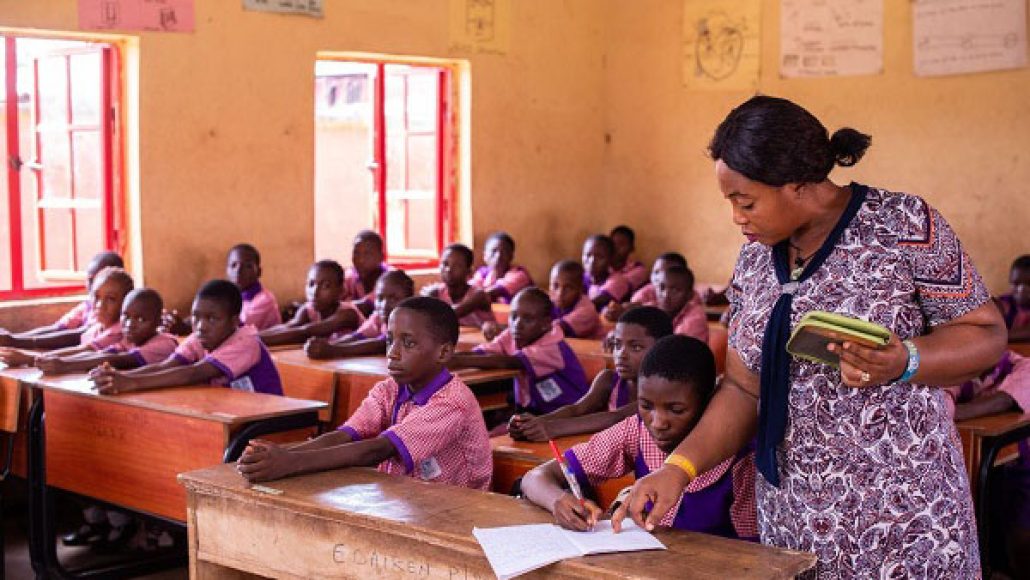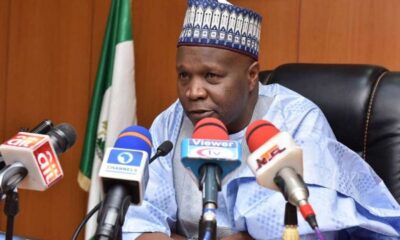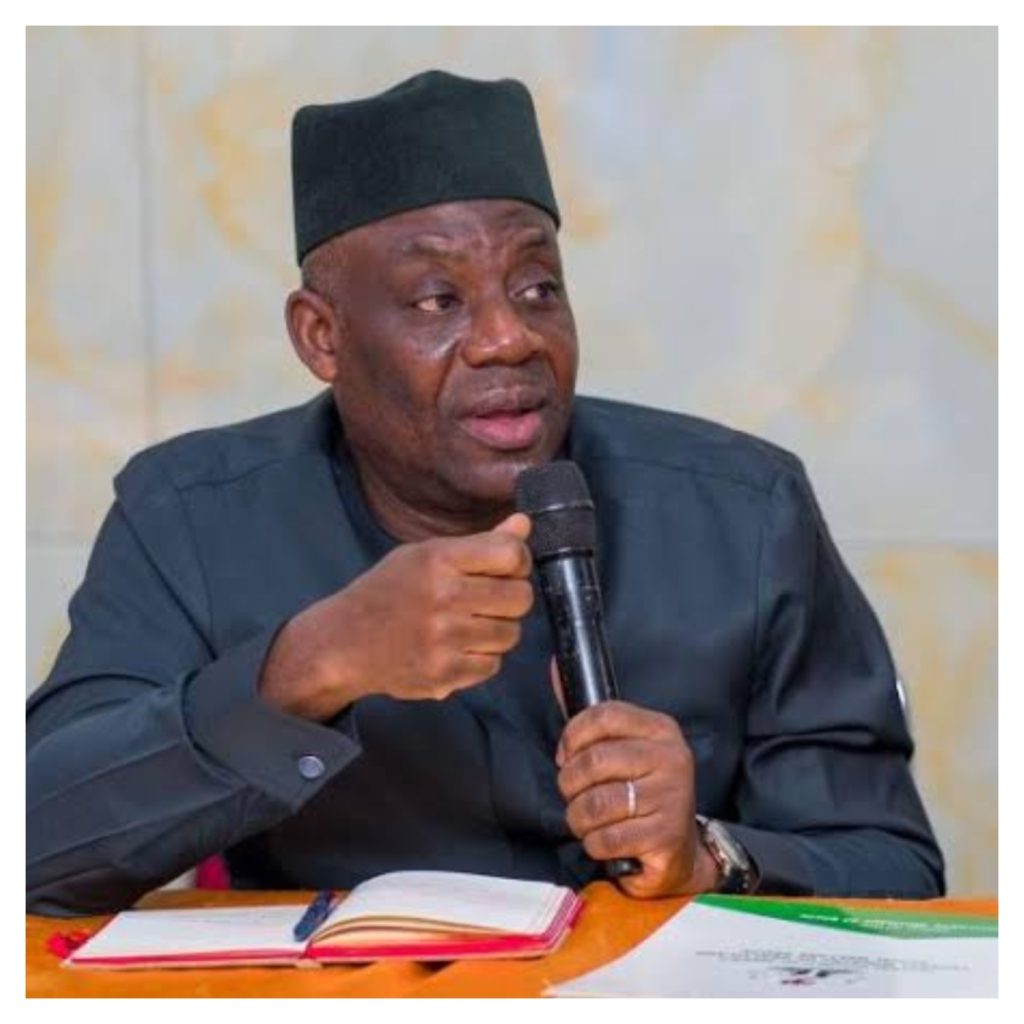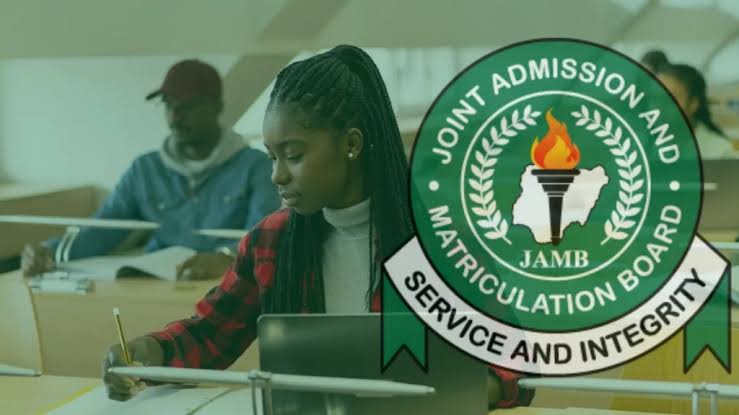Education
Federal Government scraps JSS and SSS, introducing compulsory 12-year uninterrupted Basic Education before University
Published
2 months agoon
By
Ekwutos Blog
Federal Government has announced the scrapping of all Junior Secondary School (JSS) and Senior Secondary Schools in the country and introduced compulsory 12 years of uninterrupted basic education after which a Nigerian child can aspire for higher education.
With this development, the government is seeking the abolition of the 6-3-3-4 education system and replacing it with 12-4.
This is even as it has sought the approval of the National Council on Education to officially adopt 16 years as the minimum entry age requirement into the country’s tertiary institutions.
Minister of Education, Dr Tunji Alausa, revealed this, yesterday, in Abuja during the 2025 extraordinary National Council on Education (NCE) meeting.
The Guardian reports that the NCE is the highest policymaking body in the education sector. The event was attended by commissioners for education in the 36 states and the Federal Capital Territory (FCT), agencies and parastatals under the ministry as well as development partners.
According to the minister, by subsuming secondary education into basic education, students will benefit from uninterrupted learning up to the age of 16.
Alausa said the new policy was in line with global best practices.
The reform, he stressed, would also reduce dropout rates by eliminating financial and systemic barriers that currently prevent students from completing secondary education.
“Extending basic education to 12 years will ensure a standardised curriculum that is uniformly implemented across the nation. This will also facilitate early exposure to vocational and entrepreneurial skills, preparing students for both higher education and employment.
“Many developed nations have implemented similar systems where basic education spans 12 years, ensuring that students acquire foundational knowledge before specialising at tertiary levels. This reform also aligns Nigeria’s education system with international standards, fostering better educational outcomes and global competitiveness,” he said.
He said it would also lead to economic and social impact, adding: “Educated youths contribute significantly to national development. When students receive an extended period of compulsory education, they are better equipped to join the workforce with relevant skills. This reform will also reduce child labour and other social vices resulting from premature school dropouts.”
He highlighted the implementation strategies to successfully integrate secondary education into basic education to include: policy reforms, infrastructure expansion, teacher training and recruitment, funding and partnerships, and curriculum enhancement.
He said: “Incorporating technical, vocational, and digital literacy education to equip students with 21st-century skills from their early stage of education.”
“The future of Nigeria’s education system depends on bold and strategic decisions. There is a need for radical change in our educational system if it will remain a veritable tool for socio-economic growth and development.
Primary and secondary school management is the exclusive preserve of the sub-national governments, while the Federal Government provides technical and funding support. Everyone’s attention needs to be drawn to the fact that we do have a problem in the sector and we need to understand the nature of the problem and consider our capacity and ability to effect the necessary changes based on the magnitude of what needs to be done and then devise a structure that will ensure sustainability of improving our educational system.
“Subsuming secondary education into basic education to span 12 years is a necessary step towards creating a more inclusive, equitable, and globally competitive system. It is time for us to embrace this reform to secure the future of our children and ultimately, the prosperity of our nation.”

You may like


Mr. Val’s defection from the Labour Party (LP) to the All Progressives Congress (APC) was indeed a highly miscalculated move- John Okenwa


I did only traditional marriage. Pls Atanda, how can i get a marriage c£rtificate that will be acceptable at the £mbassy?


Pope makes surprise appearance during Mass in St. Peter’s Square


Benue: Over 210 cows killed, stolen in Agatu – Youth group raises alarm


Protesters rally against Trump, Musk in ‘Hands Off!’ gatherings nationwide


Attacks on Plateau communities unacceptable – NSGF
Education
Nigerians Govt orders universities, polytechnics to publish budget, others on websites
Published
17 hours agoon
April 6, 2025By
Ekwutos Blog
The Nigerian government has directed all heads of federal universities, polytechnics, colleges of education and other higher institutions to disclose their annual budget and other institutional data for public scrutiny.
The Minister of Education, Tunji Alausa, gave this directive in a statement released on Saturday by the ministry’s spokesperson, Boriowo Folasade
The minister said that educational institutions should publish their budget breakdown, research grant, Tertiary Education Trust Fund Allocation as well as student population on their official websites.
According to the minister, the move is to enshrine accountability and transparency in Nigeria’s education sector.
“In a bold move to entrench transparency, accountability, and good governance in Nigeria’s tertiary education system, the Honourable Minister of Education Dr Maruf Tunji Alausa has issued comprehensive directive mandating all Federal Vice- Chancellors, Rectors and Provost to publish key institutional data on their official websites with immediate effect. Aligning Nigeria’s higher education management with global best practices.
“Each institution must provide its Annual Budgetary Allocation in full detail, including the breakdown of expenditure across three core areas: personnel cost overhead costs and capital expenditure. In addition,
institutions are to disclose their Research Grant Revenue from the previous year.
“This data should be separated into two distinct sources: grants obtained from domestic bodies such as local industries, government agencies, or foundations; and those received from international sources, including foreign institutions, multilateral organizations, and development partners.
“Also to be displayed is the TETFund Allocation for the current year. The Institutions must clearly show the
total amount received from the TETFund, reflecting financial support for academic and infrastructural development in the present calendar year,” the statement said.
The directive further mandates the institutions to publish the total value of their endowment fund as recorded at the end of the previous year. This figure, which reflects funds donated or invested for the institution’s long-term financial health, must be updated quarterly to ensure currency and transparency.
“Finally, institutions are to present their current Total Student Population, which must be categorized into undergraduate and postgraduate levels, thereby providing a clear picture of enrolment and institutional capacity.
“The Ministry emphasizes that this information must be presented in a clear, accessible, and user-friendly format for public visibility. Websites should be structured in a way that allows the public, including parents, students, and stakeholders, to easily locate and understand these data points.
“All federal institutions are expected to comply fully with this directive and ensure that their websites are completely updated no later than May 31, 2025,” the statement added.
Ekwutosblog had earlier reported that a transparency report described Nigerian universities as a den of impunity and secrecy.
Education
Minister of Education, Dr Tunji Alausa Advocates Extension Of NYSC Scheme To Two Years
Published
2 days agoon
April 5, 2025By
Ekwutos Blog
In a move that could reshape the landscape of Nigeria’s youth development and national integration strategy, the Minister of Education, Dr. Maruf Olatunji Alausa, has called for the extension of the National Youth Service Corps (NYSC) programme from its current one-year duration to two years.
Dr. Alausa made this recommendation during a high-level stakeholder engagement in Abuja, emphasizing the need for a more impactful and immersive service year that aligns with the country’s educational and developmental goals. According to the Minister, extending the NYSC duration would provide Nigerian graduates with a broader platform to contribute meaningfully to national growth, gain valuable experience, and improve their employability.
“The NYSC scheme remains one of the most important platforms for national unity, youth empowerment, and community development,” Dr. Alausa stated. “However, in light of current realities, a one-year period may no longer be sufficient to achieve the desired depth of impact. A two-year service period will allow for more comprehensive training, community engagement, and skills acquisition, especially in sectors critical to national development.”
The Minister noted that the proposal is still under consideration and will require widespread consultation with stakeholders, including the NYSC Directorate, education professionals, youth representatives, and members of the National Assembly.
Dr. Alausa also suggested that the extended programme could be restructured to include a first year focused on national service and community development, while the second year could prioritize skill acquisition, entrepreneurship training, and job placement initiatives.
Reactions to the proposal have been mixed, with some youth groups expressing concerns about the feasibility of a two-year compulsory service, particularly in a challenging economic climate. Others have welcomed the idea, noting that a longer NYSC period could provide a more structured transition from academic life to the workforce.
As debates continue to unfold, Dr. Alausa reaffirmed the Ministry’s commitment to policies that will enhance the quality of education and empower Nigerian youths for a brighter future.
Education
JAMB Opens Portal for Printing 2025 Mock UTME Slips
Published
3 days agoon
April 4, 2025By
Ekwutos Blog
The Joint Admissions and Matriculation Board (JAMB) has announced that the 2025 UTME Mock Notification Slip is now available for printing for candidates who opted to take the mock exam.
JAMB’s Public Communications Adviser, Dr. Fabian Benjamin, shared in a statement on Thursday that the slip contains important information, including the exam date, venue, time, and other crucial instructions.
Candidates can print their slips by visiting www.jamb.gov.ng, selecting “2025 Mock Slip Printing,” entering their registration number, and clicking “Print Examination Slip.”
The mock exam is scheduled for Thursday, April 10, 2025, while the main UTME will start on Friday, April 25, 2025. Dr. Benjamin advised candidates to print their slips early and visit their exam centers ahead of time to avoid any last-minute issues.
He also wished all candidates the best of luck in their preparations.

Atiku, Obi in talks to join SDP – Adebayo

Mr. Val’s defection from the Labour Party (LP) to the All Progressives Congress (APC) was indeed a highly miscalculated move- John Okenwa

Chief Vincent Obianodo is the Founder of Young Shall Grow Group, a leading transportation company in Nigeria.
Trending

 Trending6 months ago
Trending6 months agoNYA demands release of ‘abducted’ Imo chairman, preaches good governance
- Business6 months ago
US court acquits Air Peace boss, slams Mayfield $4000 fine

 Politics6 months ago
Politics6 months agoMexico’s new president causes concern just weeks before the US elections
- Entertainment6 months ago
Bobrisky transferred from Immigration to FCID, spends night behind bars
- Entertainment6 months ago
Bobrisky falls ill in police custody, rushed to hospital

 Politics6 months ago
Politics6 months agoRussia bans imports of agro-products from Kazakhstan after refusal to join BRICS

 Politics6 months ago
Politics6 months agoPutin invites 20 world leaders
- Politics1 year ago
Nigerian Senate passes Bill seeking the establishment of the South East Development Commission.
